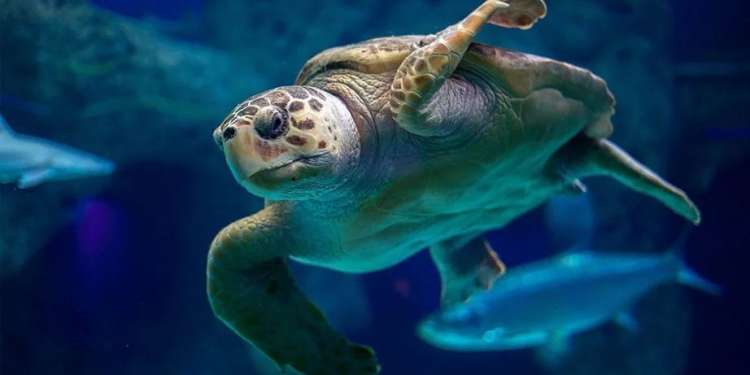For the first time, a nesting marine turtle, the loggerhead turtle (Caretta caretta), was observed during the night of July 6 on the beach of Sidi Ali El Mekki (Bizerte Governorate), the National Institute of Marine Sciences and Technologies (INSTM) announced on Wednesday. This is the first documented observation of its kind on this beach, and the third recorded case in the Ghar El Melh region since 2023, the INSTM added.
The institute explained that the environmental quality of the site—such as substrate texture, sand temperature, and seawater quality—favored the presence of this nesting female. According to the INSTM, this phenomenon represents “a remarkable event” for the northern coasts of Tunisia and may be linked to the gradual increase in marine and coastal temperatures due to climate change.
Indeed, the warming of surface waters and sand observed in recent years in the Ghar El Melh area now allows temperatures to reach the thermal thresholds required for egg incubation, making some historically marginal beaches increasingly suitable for Caretta caretta nesting.
The traditional nesting sites of this species in the Mediterranean are mainly located on the eastern coasts (Greece, Turkey, Cyprus, and Libya). However, nesting cases are increasingly being recorded in the western Mediterranean basin, notably in Italy, Spain, southern France, and now northern Tunisia.
In Tunisia, the Kuriat Islands (Monastir) and Ghedhabna Beach (Mahdia) are the main known nesting sites. The INSTM, alongside the Regional Activity Centre for Specially Protected Areas (SPA/RAC), the Coastal Protection and Development Agency (APAL), and the NGO “Notre Grand Bleu,” monitors loggerhead turtle nesting at the national level.
According to the institute, this observation suggests a possible expansion of suitable nesting habitats, justifying enhanced scientific monitoring and targeted protection. However, the success of nesting depends on the tranquility of the site. The INSTM warns against disturbances such as artificial lighting, noise, or high human activity, which can hinder the egg-laying process and prevent turtles from nesting, as was the case with this turtle.
In this context, the INSTM has called for avoiding any disturbance during the nesting season, strictly limiting or even banning the use of artificial lights on the beach at night, and immediately reporting any sighting of a nesting turtle or suspected nest. This will help ensure site protection and data collection according to scientific protocols.




